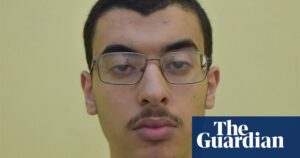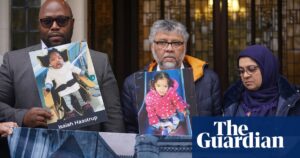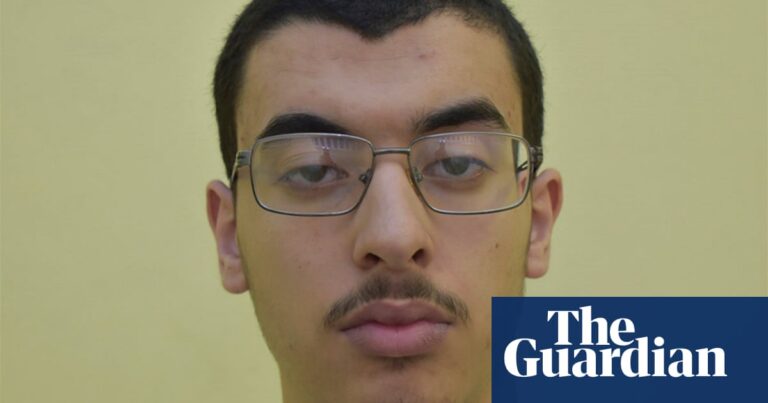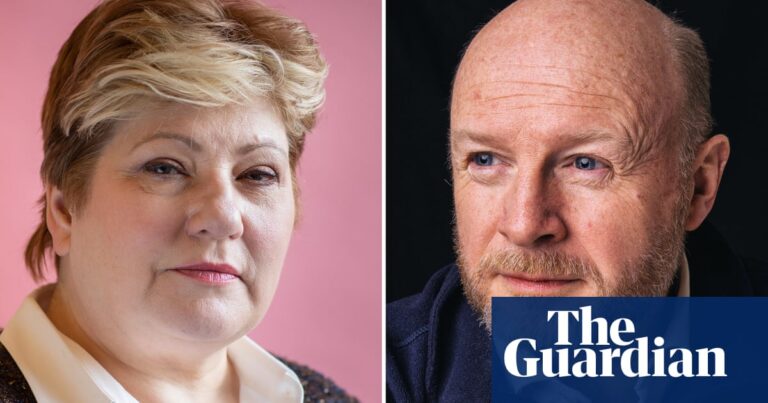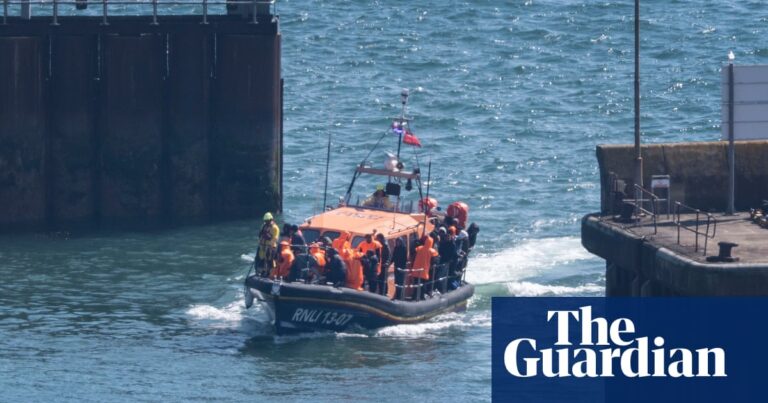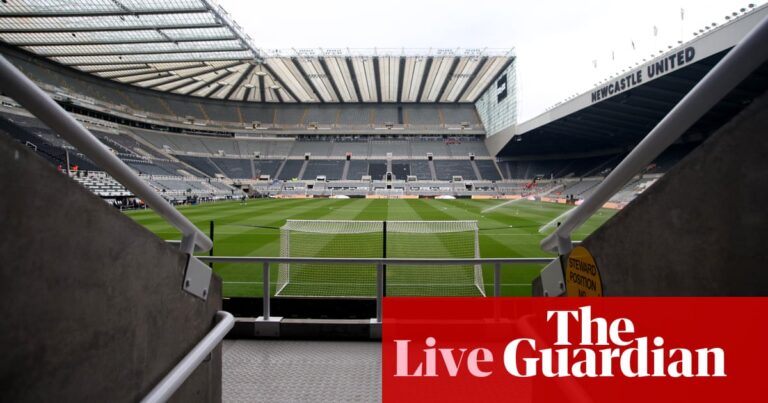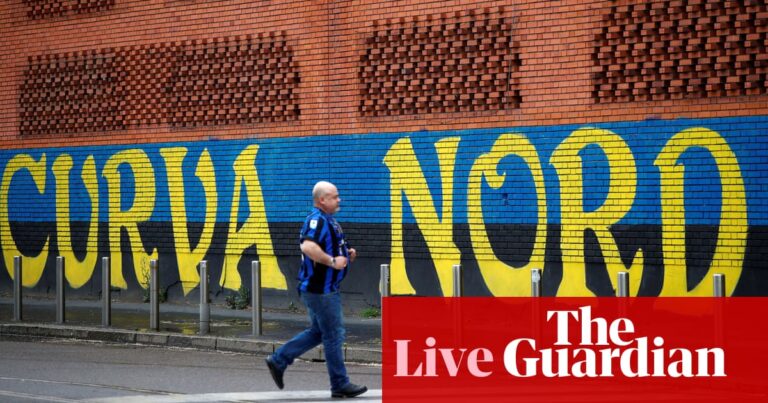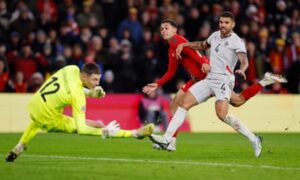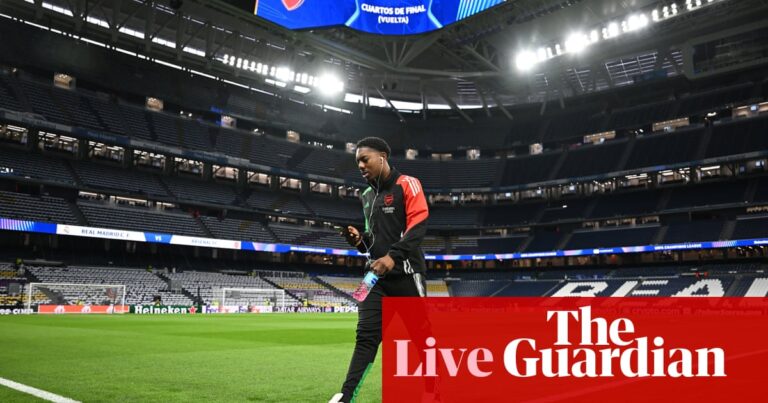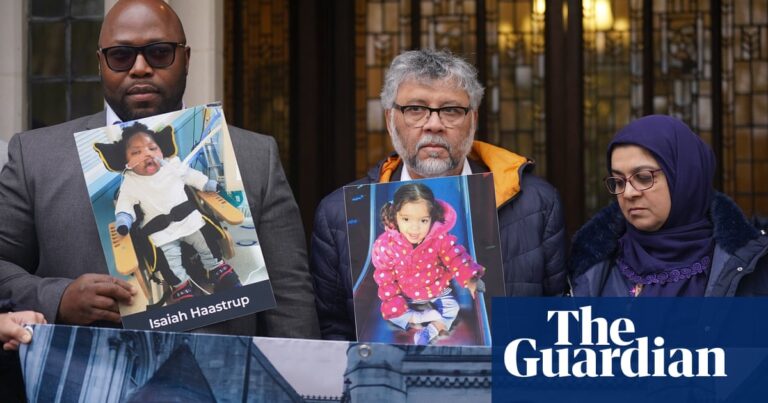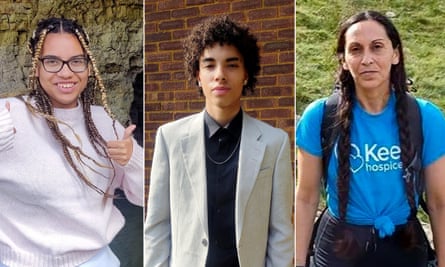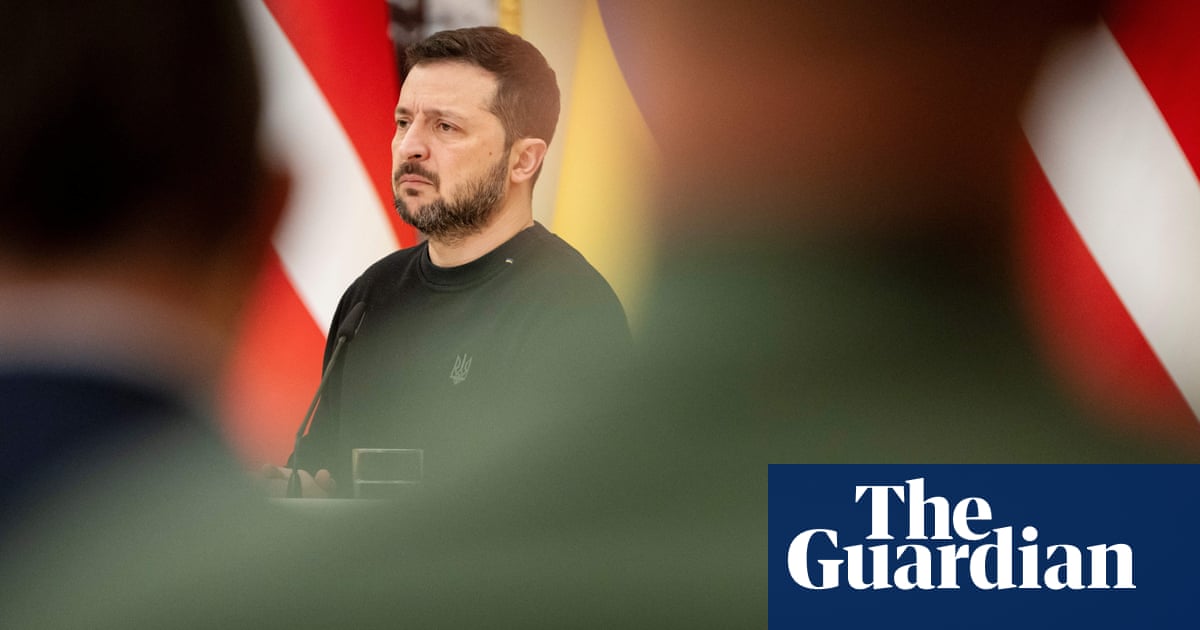
Ukraine’s western allies have criticised the final G20 communique as inadequate for failing to highlight Russia’s invasion of its neighbour in 2022 as the conflict enters its 1,000th day.
The final agreed text from the summit in Brazil was significantly weaker than that of the previous year, only highlighting humanitarian suffering in Ukraine and the importance of territorial integrity.
The Ukrainian president, Volodymyr Zelenskyy, accused G20 leaders of failing to act after his Russian counterpart, Vladimir Putin, signed a decree easing Moscow’s rules for using nuclear weapons.
“Today, G20 countries are sitting in Brazil. Did they say something? Nothing,” Zelenskyy said at a press conference, accusing the G20 of failing to form a “strong strategy”.
Olaf Scholz, the chancellor of Germany, said he was disappointed that the communique did not make any reference to Russia’s role in starting the conflict.
“It is too little when the G20 cannot find the words to make it clear Russia is responsible,” he said at his press conference.
A spokesman for Keir Starmer, the UK’s prime minister, said the shift in language was “disappointing but not surprising”. Starmer himself used a more diplomatic tone, saying it was important to include language on sovereignty but conceding that directly blaming Moscow was difficult while Russia was still part of the discussions.
Putin did not attend the summit in Rio de Janeiro for the third year running, but his foreign minister, Sergei Lavrov, was at the meeting.
The weaker language will be a blow to Starmer, who spoke repeatedly about “doubling down on support for Ukraine” and said ahead of the summit that it was the top item on his agenda.
Justin Trudeau, Canada’s prime minister, told reporters that G7 nations and “advanced economies” felt a much stronger statement was needed to reflect the “illegal invasion” of Ukraine by Russia. He said the final wording reflected the broader perspective of the G20 has broader perspectives, but said: “It’s not strong enough for me.”
Trudeau, whose government is bracing for a possible shift in relations following the re-election of Donald Trump, said the summit came “at a particularly challenging time in the world, for geopolitics but also for citizens all around the world”, because of inflation, war and climate change.
In such circumstances, finding consensus on the G20 statement at the summit has proved especially challenging.
Communiques are typically issued at the end of a meeting, but Brazil’s president, Luiz Inácio Lula da Silva, came under fire for approving a final text a day early, while leaders of France, Germany and the United States were allegedly not in the room.
“The communique was closed by President Lula. It fell short of the position we could have had,” the French president, Emmanuel Macron, told reporters on Monday night.
“This does not change anything in France’s position: it is a war of aggression launched by Russia against Ukraine, and our priority today is to obtain a lasting peace.”
In London, a No 10 spokesman said the lack of explicit language about Russia’s invasion of Ukraine was “not unexpected, given the G20 brings together a range of countries who have differing views. Not least it includes representatives of the Russian government in attendance. We would compare it to the G7 statement at the weekend, which reiterated our strong and unwavering support for Ukraine, and I think as that statement said, Russia remains the sole obstacle to a just and lasting peace.”
Starmer said he had used “every opportunity” both in the main sessions and in bilateral meetings during the summit to make clear “what we need to do to double down”.
Source: theguardian.com

